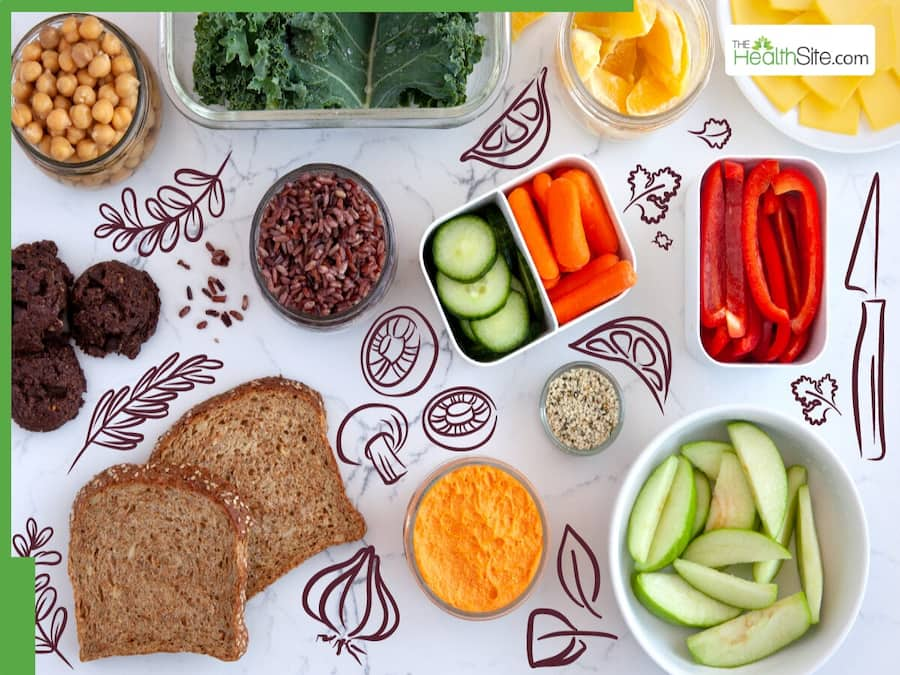Exploring Quick Nutrition Through Easy And Simple Tips For The Whole Family

In today’s fast-paced world, juggling work, family and health can seem challenging for working parents and busy professionals. Amidst the daily hustle, school drop-offs, work deadlines and evening activities, on several occasions, commercial and pre-cooked foods find their way to the dining table. Maintaining motivation and consistency over time for home-cooked meals that cater to every family member from busy parents to picky eaters, can be overwhelming. However, cooking a quality nutritious meal for your family doesn’t have to be stressful or time-consuming! You can whip up quick and balanced meals that keep your loved ones energized and support a healthier lifestyle all with simple and easy-to-follow tips.
Incorporate Healthy Shortcuts Featuring Whole Grains, Vegetables And Fresh Fruits
Healthy shortcuts can simplify meal prep while ensuring your family gets essential nutrients. Incorporating whole grains, fresh fruits, and vegetables into daily meals does not have to be complex or time-consuming. Start by choosing whole-grain items like oats, whole-wheat pasta, broken wheat (daliya), and quinoa for a fibre-rich meal that provides sustained energy. Pair these grains with stir-fried or roasted vegetables for quick and nutritious sides or mains. You can pre-cut vegetables and refrigerate them in food containers for up to 2-3 days so that they are ready to use while cooking any side dish. Further, pre-cut vegetables come in handy while tossing together a salad or turn into quick bites with dips such as salsa, and hummus or a one-pot soup, thereby saving time. For the picky eaters, one can add finely grated vegetables into pasta, parathas or muffins.
Similarly, fresh fruits can be effortlessly included in breakfasts and snacks yoghurt fruit parfait, blended into smoothies, fruit chaat, banana pancakes, and muffins with fruits. Their fibre-rich content along with natural sugar provides energy to the body. Use cookie cutters to cut fruits into interesting shapes to make them appealing to the younger ones. On the other hand, utilising pre-made whole-grain wraps or pita pockets filled with veggies, lean proteins, and healthy spreads can transform leftovers into a wholesome meal in minutes. These simple yet effective shortcuts make it easier to prioritize balanced eating even on the busiest days.
Focus On Healthy Fats And Minimize Bad Fats For Nutritious Meals
Maintaining a balance of fats in your family’s diet can protect the body against heart disease. Healthy fats such as monounsaturated (MUFA) and polyunsaturated (PUFA) fats are essential for brain development, hormone regulation, and nutrient absorption. Hence, including foods enriched with nutritious fats such as avocados, walnuts, flaxseed, and fatty fish can be beneficial for one’s health. Simple swaps, like changing your cooking oil to multi-source edible oil with a good balance of MUFA and PUFA, vitamins and antioxidants can make everyday meals much healthier.
Alternatively, be mindful of saturated and trans fats found in butter, dalda, and margarine, which are common sources of bad fats. While shopping for commercial baked items or any edible packaged food item, read the ingredients list thoroughly to make an informed choice against unhealthy fats. Motivate children to choose home-cooked and easy items that are enriched with good fats.
Power Up With Increased Consumption Of Low-Fat Protein Sources
Prioritizing lean, low-fat protein sources is a smart way to support a healthy, balanced diet for the whole family. These proteins provide essential nutrients without the added saturated fats often found in processed or fatty meats. Incorporate options like skinless chicken, turkey, fish, eggs, legumes, and low-fat dairy products into your meals. Plant-based proteins such as beans, lentils, and tofu are also excellent choices that supply fibre and other key nutrients. Swap high-fat meats for grilled or baked alternatives and experiment with meatless meals by using legumes and soy products in dishes like stir-fries, or pasta sauces. Opt for Greek yoghurt, cottage cheese, and skimmed milk instead of full-fat dairy to maintain protein intake while minimizing unhealthy fat consumption. These mindful adjustments ensure your family enjoys protein-rich meals that fuel energy and support overall wellness without unnecessary saturated fats.
In order to better manage your meal prep, dedicate a part of the weekend to it. Preparing ingredients in advance like chopping vegetables, marinating proteins, or cooking grains can significantly cut down cooking time during hectic weekdays. A planned week also gives you better means to transform your daily meals into energy-boosting options.
Don’t Miss Out on the Latest Updates.
Subscribe to Our Newsletter Today!

